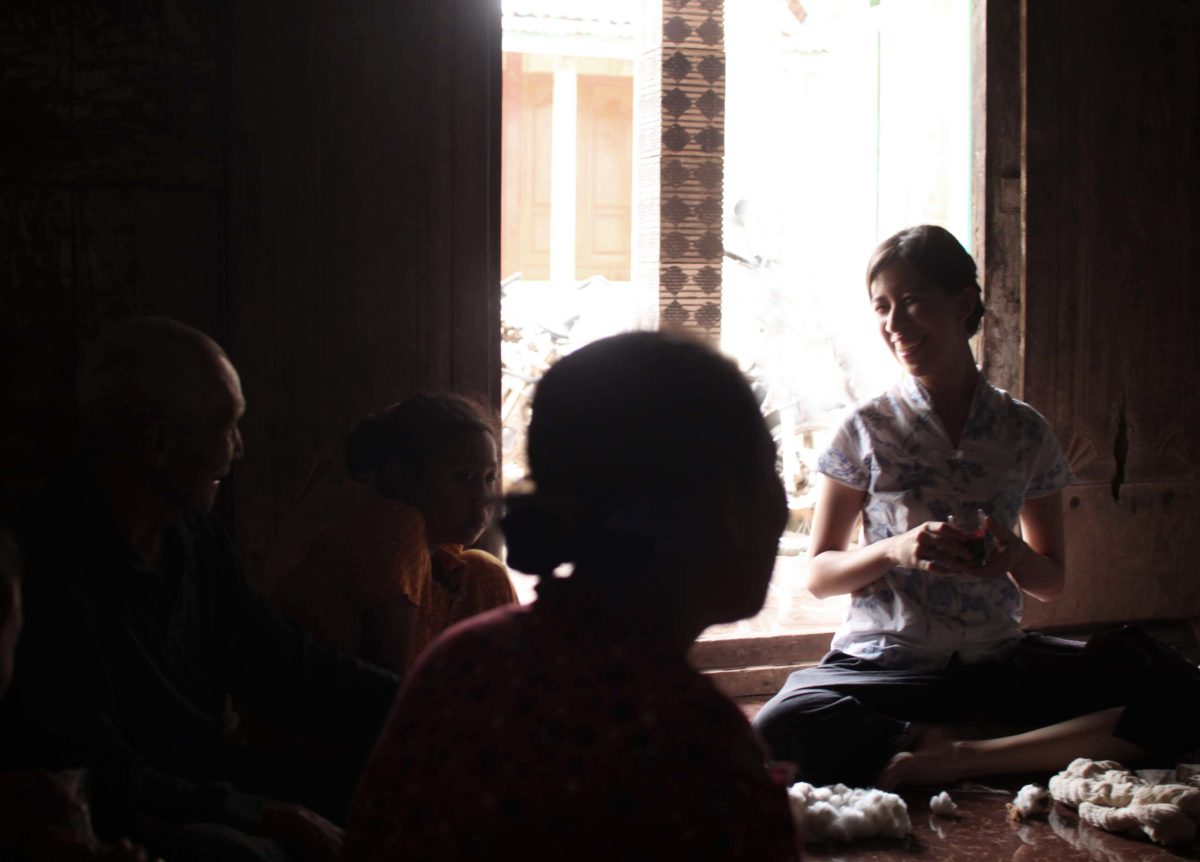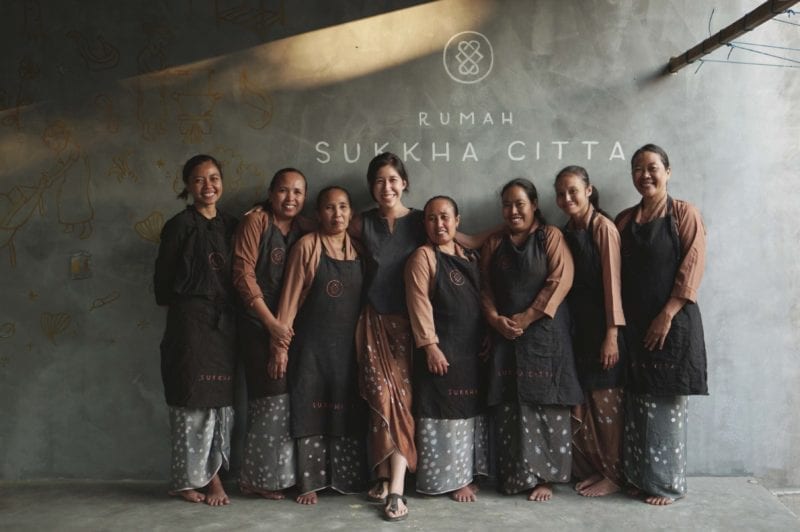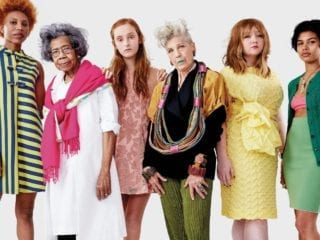Previously, Darling sat down with Denica Flesch, founder and CEO of SukkhaCitta, an ethical, handmade women’s clothing line that focuses on supporting local artisans with fair wages. Flesch’s mission is to help end the cycle of poverty affecting residents in “last-mile communities” in Indonesia, where the company is based. Throughout the years, SukkhaCitta has been an answer to the problem of an unethical fashion industry.
Recently, with the outbreak of COVID-19, Indonesia has been hit hard as workers who depend on daily wages were laid off and many cannot even eat. Flesch and the SukkhaCitta team are banning together to do what they can despite running business losses each day. Right now, the company is using all its savings to keep its 109 artisans working as many of their husbands were already laid off.
SukkhaCitta is also leading a fundraising campaign for a small village in Sumba Island, where 1 out of 2 kids is stunted due to malnutrition. Flesch and her team are making zero-waste kids clothes from off-cuts. The cost of each pair is just enough to provide enough nutrition for one child to grow up without stunting. All profits will go directly to the campaign.
Here’s what Flesch had to say about the economic effects of coronavirus on SukkhaCitta and the nation of Indonesia:
I look down from the window to streets that used to be busy. With a third of the world’s population under self-quarantine, our big world seems to be a lot smaller these days.
Our big world seems to be a lot smaller these days.
Watching the situation unfold here in Indonesia has been nothing short of an emotional journey. The news broke on March 15th, when our government declared the need for social distancing. We’ve been working from home ever since, but I quickly came to realize that this is a luxury most in this country cannot afford.
With more than 70 million of our population surviving on daily wage, many are hit hard through the economic impact of COVID-19. As demand for non-primary needs virtually evaporated, the fallout on the supply chain is real. This reality is what prevents our government from imposing a lockdown—even as we are losing control with mass-infections expected through the islands.
Yet, despite all these efforts, I can already see the fallout of the current crisis in our artisan communities. At SukkhaCitta, the social enterprise that I founded back in 2016, we work with marginalized, often invisible craftswomen—in villages, not factories. Many of their husbands were already let go from their day jobs, leaving our artisans as the sole providers of the family. Keeping them in work is our sole focus right now.
Keeping them in work is our sole focus right now.
Like many others, our business was hit hard. Every day, we face a staggering 80 percent decline in sales. As a small social enterprise, I would be lying if I say I’m not worried. We don’t have big venture investors to save us.

With our tight margins, we have limited cash savings that we’re currently using to get us through this. Yet, now more than ever, they need us. Even when we are losing money every single day.
They need us. Even when we are losing money every single day.
To support our more than 100 artisans, we arranged for all of them to start working from home. We closed our craft schools (Rumah SukkhaCitta), turning them into community safehouses to stock basic needs so they don’t have to leave their village as often. We issued individual work orders so each of our artisans can still get access to work at our regular premium living wage rate. We are also now making three-layered face masks—to donate and sell—to keep our seamstresses busy.
Amidst all the difficulty, I am grateful that we at least have the capacity to do this. In the fashion industry, millions have already lost their jobs as major global retailers canceled purchase orders. Even before this, less than 2 percent of workers earned a living wage to cover their most basic needs. With most manufacturing taking place in developing countries such as Bangladesh and Indonesia. With no social safety net, we are bracing for a human disaster unveiling.
In moments of weakness, I lose myself to fear over how long we can continue doing this financially. However, it was this same fear that makes me realize how interconnected we all are in this human moment. We’re all struggling in some way. Maybe you’re fearful over your loved ones’ health or you worry about your financial situation over the coming months.
No matter who or where we are, our shared vulnerability reminds us that we’re in this together, as we’ve always been. I find comfort in taking things one day at a time. Today, I choose to get out of my bubble of worry and remember that the only thing we truly have is this present moment.
No matter who or where we are, our shared vulnerability reminds us that we’re in this together.
Staying still for a moment. Take a deep, conscious breath in and a deep, conscious breath out. Feel how life continues, in all its forms. At this very second, in every corner of the world, flowers are blooming and life is born. The world is okay and so are you. Do you feel it?
With you in spirit,
Denica
SukkhaCitta is currently accepting donations here that will go toward providing non-medical masks for front-line workers and impoverished communities living in the proximity of hospitals.
What small businesses like SukkhaCitta can you support?
Image via Sukkhacitta











